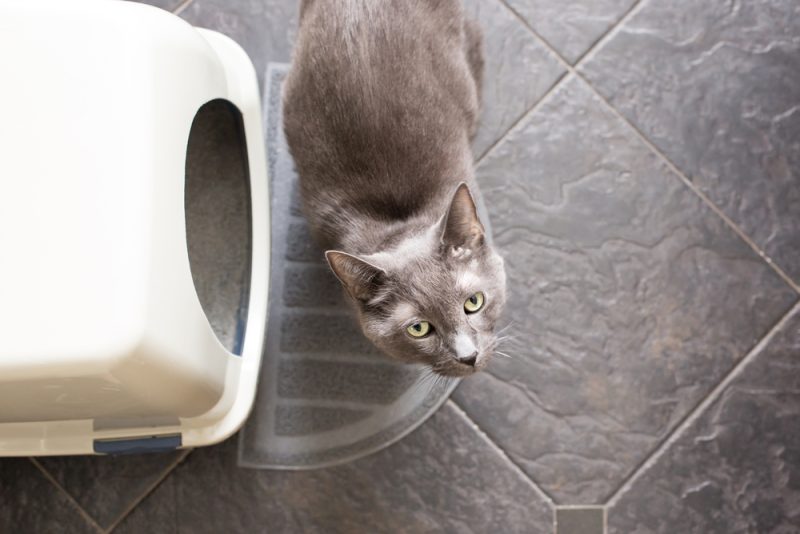Is Your Cat Constipated? 12 Simple Remedies Vets Recommend Trying at Home
In this articleSigns Your Cat May Be Constipated12 Natural Home Remedies for Cat ConstipationFinal ThoughtsView 2More +Less -Few things worry cat parents more than when their kitty cant go. Constipation is one of the most common digestive issues cats face and one of the most uncomfortable.While some cases are mild and manageable at home, others can signal something serious. If your cat hasnt passed stool in more than 48 hours, or if theyre in visible pain, call your vet immediately.For mild or occasional constipation (and always under a vets guidance), there are safe, natural steps you can take to help your cat feel better.In this guide, youll learn:The warning signs of constipation every cat parent should know12 vet-approved remedies to ease discomfort at homeWhen to stop home care and head straight to the vetSigns Your Cat May Be ConstipatedImage Credit: art nick, ShutterstockMost cats pass stool every 24 to 36 hours. If your cat is going less often or seems uncomfortable in the litter tray, they may be constipated.Common signs include:Straining in the litter trayPassing small, hard, dry stoolsPain or crying when defecatingLess frequent bowel movementsBloody discharge from the anusSwelling or bulging around the anus If symptoms are severe or ongoing, dont wait! Book a vet appointment right away.12 Natural Home Remedies for Cat ConstipationIf your cats constipation is mild, already being monitored by your vet, or happens occasionally, these natural remedies may help.IMage Credit: Olesya_Alexandrova, Shutterstock1. Keep Your Cat HydratedDehydration makes constipation worse. Encourage water intake by:Offering multiple bowls around the houseTrying a cat water fountain or a dripping tapFlavoring water with tuna juice or bone broth (always leave plain water too) Many cats prefer running water, and a fountain keeps hydration fresh and fun.2. Switch to Canned FoodWet food boosts fluid intake, which softens stools. If your cat eats mostly dry kibble and struggles with constipation, adding canned food can make a big difference.3. Adjust Your Cats DietFood sensitivities can inflame the gut and slow digestion. Talk to your vet about:Trying a different protein sourceSwitching to a hypoallergenic formulaAdding more dietary fiber (see Remedy #8)4. Maintain a Healthy WeightExtra pounds can slow food transit and put pressure on the intestines. Overweight cats may also avoid the litter box. A healthy weight supports better digestion and overall wellness.5. Reduce Stress & AnxietyStress can slow digestion. Common triggers include:New pets or peopleLoud noises or routine changesMoves or constructionKeep your cats environment calm and predictable. Some cats respond well to pheromone diffusers or vet-prescribed anxiety aids.6. Offer Multiple Litter BoxesCats are picky about their bathroom habits. Constipation can worsen if they avoid the box. Make sure boxes are:Scooped dailyQuietly locatedBig enough for comfortOffered in multiples (one per cat + one extra)7. Encourage ExerciseMovement keeps digestion healthy. Try:Daily play sessionsCat trees and climbing shelvesPuzzle feeders for enrichment8. Add Fiber (With Vet Guidance)Fiber helps stool pass more easily and retains water in the gut. Options include:Pumpkin (plain, canned)Psyllium huskWheat bran Too much fiber can cause diarrhea. Always consult your vet first.9. Use Vet-Approved LaxativesSome over-the-counter products can help soften stools, but never give a laxative without your vets approval. Some can be dangerous if your cat has other health issues.10. Try ProbioticsProbiotics support healthy gut bacteria and digestion. Some foods contain them already, or you can add a vet-approved supplement.11. Brush Your Cat RegularlyHairballs are a common cause of constipation. Brushing reduces excess hair and helps prevent blockages. Special hairball aids are also available.12. Keep the Back End CleanMatted fur or dried feces around your cats rear can make bathroom time painful. Long-haired, overweight, or arthritic cats may need extra help staying clean.Final ThoughtsConstipation is common in cats, but with the right care, its often manageable. Hydration, diet tweaks, stress reduction, and regular grooming can all make a difference. Remember: if constipation is severe, frequent, or lasting more than 48 hours, always see your veterinarian. Conditions like kidney disease or megacolon require medical treatment, not home remedies.Feature Image Credit: Jennifer McCallum, Shutterstock


